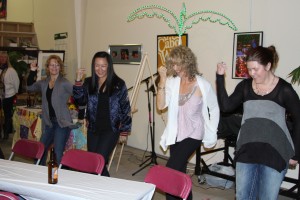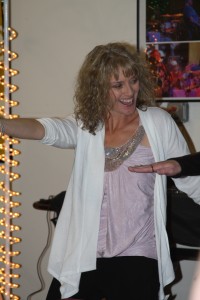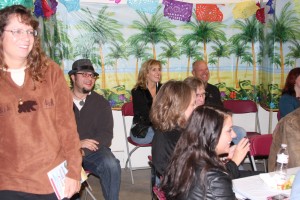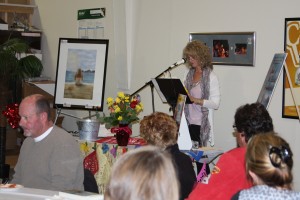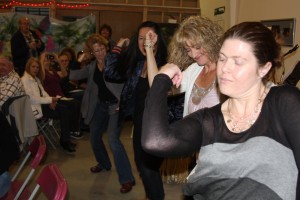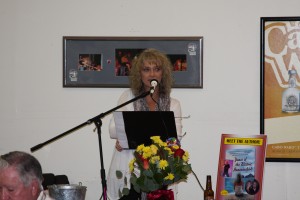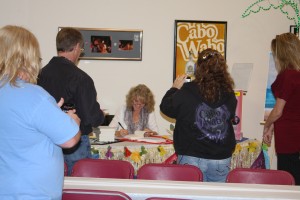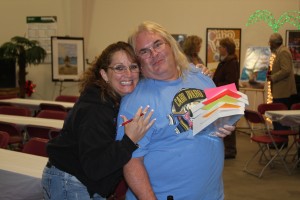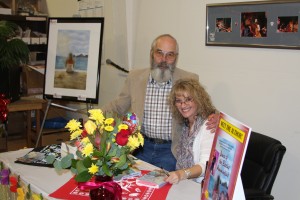March 4, 2010

One of my readers sent this to me recently and I wanted to share it with you, along with my reply to her. (She has given me her approval.) In her email, (I’m paraphrasing here) she told me that film critic Roger Ebert had recently appeared on the Oprah Show. For more than eight years, he’d been battling thyroid cancer that eventually spread to his salivary gland and jaw. Because of this, most of his lower jaw had been removed and it left him unable to speak or eat. He uses a computer into which he types what he wants to say and it replays the words.
Ebert wrote in his journal that the purpose of our lives is to make the lives of others a little happier and to make ourselves happier. Anything contrary to that is a travesty because unhappiness is the breeding ground for crime. He said that he didn’t always know this, but was glad that he has lived long enough to realize it.
When asked about his appearance, he replied that nobody is perfect and that we have to accept who we are and keep on living.
My reply to her email:
I hope most of us don’t have to go through what he did to realize that what he says is true. Unfortunately all we have is our words to help us convince others of the things we know will improve their lives. Here’s an excerpt for you from my book. The setting takes place in a coffee shop, where I’m talking to a famous poet. In this scene she has just finished reading some of my work.
Following is an excerpt from DANCE OF THE ELECTRIC HUMMINGBIRD. It’s from Chapter 28 — Beyond the Holes of Words:
(9-25-11: This chapter has been edited out of the manuscript. Sorry for any inconvenience!)

“What exactly are you trying to say here?” She points to a line in my poem with her pen.
I fumble a bit, unsure of how to respond because I’ve sugarcoated my meaning. I take a sip of my mocha latte to stall. It tastes even better than before. I take another. Then I look around the small room—the walls are painted light pink and there are dark, wooden shelves displaying coffee products for sale. Three other customers sit in overstuffed chairs arranged facing one another near the windows. The entire atmosphere is one of warmth, relaxation, and trust. It seems to say, “Go ahead…”
I’m trying not to focus on the fact that Victoria is the perfect image of a teacher, which she is, after all, because in my mind, teachers had always been harbingers of doom. Of course, this is my own silly notion left over from my Catholic school days—Victoria is not dressed in a black and white nun’s habit. She’s wearing a floral print button-down blouse, impeccably ironed, and white pants, her grey hair cut short and neatly styled. Why do I do this to myself?
“Do you mean ‘vagina’?” Her soft-spoken manner seems contradictory to such frankness.
“Yes.” I’m quite caught off-guard.
“Then say ‘vagina.’” She crosses out what I’ve written and scribbles the word “vagina” with her red pen.
I take another sip of my latte, swallowing hard in an attempt to disguise the little smile creeping over my face.
She and I had become friends when I’d signed up for the Writing through Loss grief support group after my parents died. Over the years, I had attended several of her writing workshops and poetry readings, hoping to absorb as much knowledge from her as I could. And now she was the person in charge of the class I’d enrolled in.
During one of the sessions, as the group of mourners sat writing in our chairs, she quietly approached me.
“I really love your writing. I was wondering if you’d be interested in working with me on your poetry.”
“I’d be honored!” I was a little embarrassed because I wasn’t used to compliments like this. But I sorely needed help and direction with my writing, and professional advice. I had so much inside of me that I wanted to say and I wanted it to come out as art so others could relate, but sometimes I didn’t know quite how to say it. I didn’t want to offend anyone.
And now, sitting across from her, I realize that she’s not judging me. She’s treating me with respect for what it is I need to say as an artist. What ridiculous notion had convinced me that she would immediately reject me based on one word? I feel my body relax and I gain even more respect for her—this tiny woman with a big soul.
But I learned from an early age to care what others thought of me, which stemmed from my worrying about what God thought of me. Growing up I learned how not to bring attention to myself. I was always on the lookout for what others expected of me and strove to live up to their expectations. And the things the girls at school said about me hurt me deeply, so I knew that words had a lot of power. Prepubescent girls can be horribly cruel, but I never fought back; I couldn’t conceive of hurting anyone else on purpose, even if they’d hurt me first. It went completely against my nature.
So the words thing was obviously deeply ingrained in me. I was concerned that people would form the wrong opinion of me for that reason.
Thoreau said, “Say what you have to say, not what you ought.” And here is the poet telling me pretty much the same thing.
Art is supposed to incite raw emotion.
So when it comes to writing this book, a much bigger project than writing one poem, trying to explain all this is very much like trying to explain Zen: no matter which words I choose, the only way another can truly know how it feels is by personal experience. Nevertheless, my soul screams that I have to try. I have to tell this story. It’s a quagmire I just know I can conquer if not with words, then through some sort of osmosis that whoever is meant to hear and understand, will. And yet, my ferryboat is built of words.
D. T. Suzuki writes:
Cannot Zen be so explained that a master can lead all his pupils to enlightenment through explanation? Is satori something that is not at all capable of intellectual analysis? Yes, it is an experience which no amount of explanation or argument can make communicable to others unless the latter themselves had it previously … For a satori turned into a concept ceases to be itself … Therefore, all that we can do in Zen in the way of instruction is to indicate, or to suggest, or to show the way so that one’s attention may be directed towards the goal. As to attaining the goal and taking hold of the thing itself, this must be done by one’s own hands, for nobody else can do it for one…
I can’t wrap its message into a neat little package others can take with them like a piece of chewing gum that releases some great philosophical truth when you bite into it. If I could, believe me, I would.
END OF EXCERPT.
